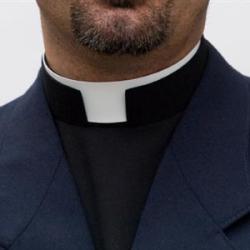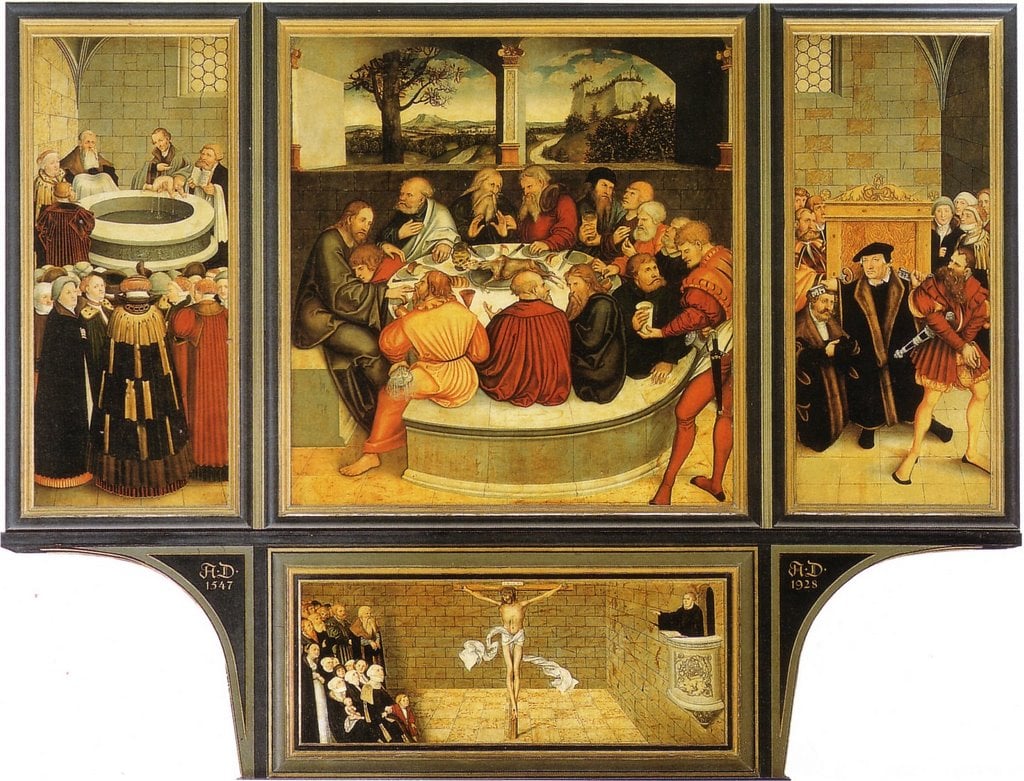No, this post is not about me – I’m not what we call a “bad boy” today, though I am, like the Apostle Paul, a person who does find himself thinking, saying and doing evil things (more on that kind of thing here). The reason for the title of this post will become clear by the end. Stay with me.
Recently, I have been studying the issue of confession and absolution in the church. One of the interesting books I have taken a look at is “Confession: Doorway to Forgiveness” by Jim Forest (Orbis Books, 2002). Forest is a convert to the Eastern Orthodox Church and so his account is a nice introduction to the topic for those of us who may only be familiar with the Western forms of the tradition.
The last chapter of the book is titled “True Confessions”, and is made up of a number of shorts stories about confession. Most of these stories, anonymous in the book, were solicited by Forest from his friends, and come from several lay people, nuns, monks and priests.
As someone who is eager to uphold and promote the practice of private confession and absolution in the church (literally a matter of life and death, as this short clip from the old TV show “ER” shows), it was heartening to read these accounts, even if occasionally some of the theology they contained made me wince a bit. Here is an excerpt from a rather self-reflective story that I found to be refreshing and worth noting:
“I must admit there is a feeling of companionship somehow, even as we sit separately in the darkened chapel. There is not a lot of contact or talk as we wait. And when glances do meet on occasion, usually the slight smile of acknowledgment fades as your eyes fall to the floor. I sit in my chair, hands folded nervously on my lap. There was only one time I just couldn’t face the process and left. It had been raining and as I sat watching I tried to talk myself out of staying because if I missed my bus, I’d miss my subway train, and on and on, until I got up and walked out the door. But as I walked in the rain to the corner, I realized it wasn’t the commute I dreaded but confession.
I have problems with trying to know what to say. It’s not that I don’t recognize that I’m a sinner, but I seem to accept sin as part of human nature or personality, which makes it something that is not going to really change very much or go away. Thinking like this kind of normalizes relations with sin while at the same time ignoring the darkest consequences or source of sin. It’s like favored nation trading status with a dictatorship. We want all the benefits of trade but overlook the violations of human rights and integrity.
There are a lot of problems with this, I realize, but in some ways I’ve used sin to define myself and not necessarily in a negative light. I’ve noticed that when my old friends and I get together and talk we spend hours laughing and retelling stories about our wild youth. It seems, however, that those stories are in many ways stories about how much we enjoyed committing sins. Maybe that’s where the expression “sins of youth” comes from. Sin is expected in the young. Of course we’re not talking about major crimes against people, but when I stop to think about it, they may be crimes against God and certainly the teachings of the Church.
I still have a tendency to see the wild side as freer than the temperate, and to see rebellion as much more positive than negative and a way to distance oneself from the banality and mediocrity of mass society.
My impatience and temper, my sarcasm, my so-called “biting wit” are ways I define “me as me” in the world. Of course, those somehow become translated and calculated in a vast personal algebra of character and predisposition.
Unfortunately, I have a tendency to reduce those traits into a continuum of understandable explanations and excuses for my personal behavior and relations to others and the world. I weave stories and reasons into a systematic construction that leads me to conclude that what I have done is generally acceptable given the circumstances of my life. I reduce my sins to a group of personality traits.
As I sit waiting for our priest to complete hearing the confession of the person before me, I consider what I will say. I think about my actions during the period since my last confession and sort out what a sin is from what is not. It’s not hard to recall my anger or sharp words. It’s not hard to recall my foul mouth and quick temper. It’s not hard to recall too many vodkas. I count and measure, divide by time and guilt, and usually come up with a list of behaviors I’m not proud of. I guess being ashamed about something is a pretty good sign that some definition or variable of sin may be involved. A guilty conscience was the first compass I had in learning how to recognize sin.
Though I don’t like doing it, and I don’t do it well, there is a great respect and intimacy in the act of making confession and that seems understood and respected by everyone in the church. There is a quietness in waiting that surrounds us in our quandary and distress.”
As a Lutheran, I am eager to not only talk about confession, but the issue of absolution (our churches do not require private absolution, even as it is encouraged – see Luther’s Small Catechism on the topic and here for more). As pertains to confession, there are surely times, when, reflecting on the ten commandments, we will be very aware of our specific sins. And at the same time, there will surely be times we may wonder whether or not a particular action that we did – even if the action itself is unobjectionable* – showed a lack of true love (“Should I have spent time with the kids helping them with their latest project instead of the ‘me time’ I took yesterday?”). And of course, it is no surprise that Martin Luther, always eager to point out that sin touches all of our actions, takes us deeper into the meaning of confession. Here is one of his key writings on the topic (the Smalcald Articles), where he also highlights for us the importance of the absolution, or Gospel, as well:
This, then, is what it means to begin true repentance; and here man must hear such a sentence as this: You are all of no account, whether you be manifest sinners or saints [in your own opinion]; you all must become different and do otherwise than you now are and are doing [no matter what sort of people you are], whether you are as great, wise, powerful, and holy as you may. Here no one is [righteous, holy], godly, etc.
Here Luther, eager to share the biblical themes of deep sin and deep grace, is putting forward something like this provocative and well-intentioned blog post – but without the real measure of offense which that post contains. He goes on:
But to this office the New Testament immediately adds the consolatory promise of grace through the Gospel, which must be believed, as Christ declares, Mark 1:15: Repent and believe the Gospel, i.e., become different and do otherwise, and believe My promise. And John, preceding Him, is called a preacher of repentance, however, for the remission of sins, i.e., John was to accuse all, and convict them of being sinners, that they might know what they were before God, and might acknowledge that they were lost men, and might thus be prepared for the Lord, to receive grace, and to expect and accept from Him the remission of sins. Thus also Christ Himself says, Repentance and remission of sins must be preached in My name among all nations.
But whenever the Law alone, without the Gospel being added exercises this its office there is [nothing else than] death and hell, and man must despair, like Saul and Judas; as St. Paul, Rom. 7:10, says: Through sin the Law killeth. On the other hand, the Gospel brings consolation and remission not only in one way, but through the word and Sacraments, and the like, as we shall hear afterward in order that [thus] there is with the Lord plenteous redemption, as Ps. 130:7 says against the dreadful captivity of sin.
Read more of this from Luther here.
FIN
*The author of this account discusses the actual sins and sinful habits (activities that are objectively evil) that he feels guilty about. Luther makes some comments about confessing these kinds of sins in the Smalcald Articles as well:
“And in Christians this repentance continues until death, because, through the entire life it contends with sin remaining in the flesh, as Paul, Rom. 7:14-25, [shows] testifies that he wars with the law in his members, etc.; and that, not by his own powers, but by the gift of the Holy Ghost that follows the remission of sins. This gift daily cleanses and sweeps out the remaining sins, and works so as to render man truly pure and holy…
It is, accordingly, necessary to know and to teach that when holy men, still having and feeling original sin, also daily repenting of and striving with it, happen to fall into manifest sins, as David into adultery, murder, and blasphemy, that then faith and the Holy Ghost has departed from them [they cast out faith and the Holy Ghost]. For the Holy Ghost does not permit sin to have dominion, to gain the upper hand so as to be accomplished, but represses and restrains it so that it must not do what it wishes. But if it does what it wishes, the Holy Ghost and faith are [certainly] not present. For St. John says, 1 John 3:9: Whosoever is born of God doth not commit sin, … and he cannot sin. And yet it is also the truth when the same St. John says, 1:8: If we say that we have no sin, we deceive ourselves and the truth is not in us.













